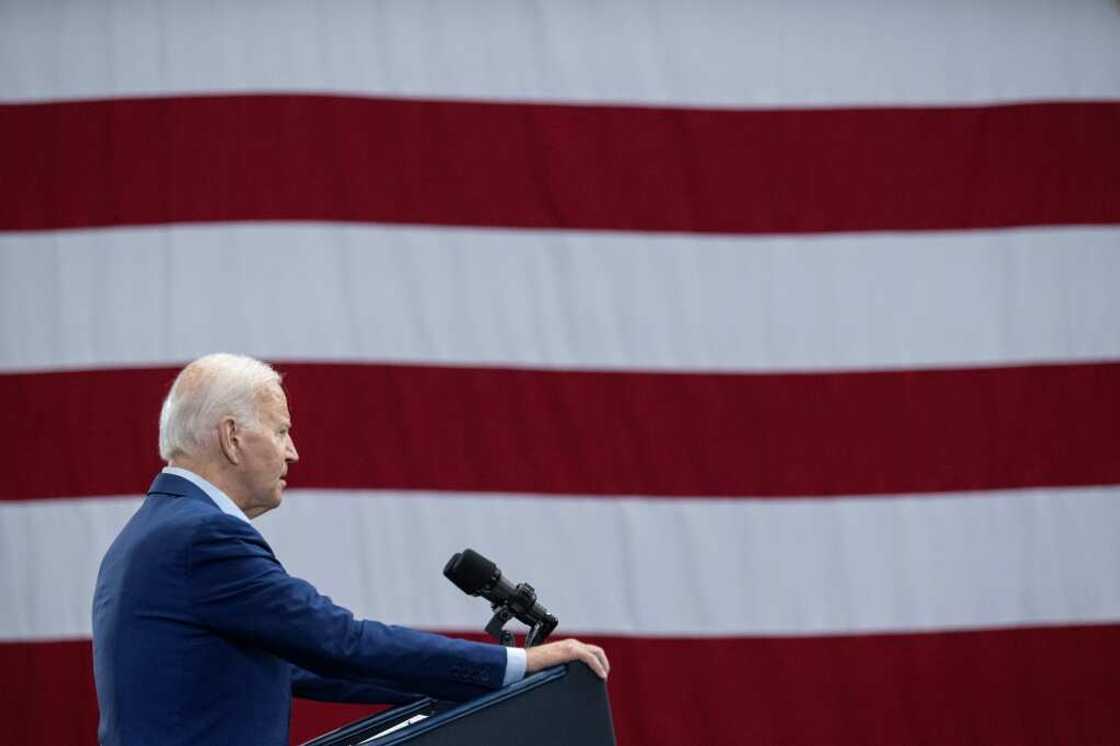US announces curbs on outbound investments to China

Source: AFP
The United States on Wednesday announced steps to restrict certain US investments in China, targeting high-tech sectors like semiconductors and artificial intelligence -- a move that could further strain bilateral ties.
The long-anticipated measures come as US President Joe Biden issued an executive order to tighten outbound financial flows -- a key step as Washington seeks to safeguard national security.
"The outbound investment program will fill a critical gap in the United States' national security toolkit," a senior government official said on condition of anonymity.
"What we're talking about is a narrow and thoughtful approach as we seek to prevent (China) from obtaining and using the most advanced technologies to promote military modernization and undermining US national security."
The program, which will come into effect after a customary public comment period, will prohibit certain investments in entities that engage in activities relating to tech areas with national security risks, said the Treasury Department.
Other sensitive investments will call for a notification to the Treasury, it added in a statement.
PAY ATTENTION: Follow us on Instagram - get the most important news directly in your favourite app!
China could exploit US investments to further its ability to produce sensitive technologies critical to military modernization, Treasury said.
But it anticipates exempting certain transactions, potentially those in publicly traded securities and transfers from US parents to subsidiaries.
Meanwhile, the types of transactions covered under this program are expected to include acquisition of equity interests, greenfield investments and joint ventures.
Chilling effect?
While the volume of dollars or numbers of transactions covered by a ban or notification regime are likely to be quite small, it does not necessarily mean the overall impact will be limited, said Emily Benson, director of the Project on Trade and Technology at the Center for Strategic and International Studies (CSIS).
"It's possible that while they're not directly subject to bans, companies will rethink the nature of their investments and that could have a chilling effect on bilateral investment over time," Benson told AFP.
The latest restrictions come shortly after visits by several high-level US officials to China as the world's top two economies aim to stabilize ties.
During Treasury Secretary Janet Yellen's July trip to the Chinese capital, officials from both sides talked about what such curbs might look like, and she told reporters that any new moves would be implemented in a transparent way.
"I emphasized that it would be highly targeted and clearly directed narrowly at a few sectors where we have specific national security concerns," Yellen said in July.
She added at the time that she wanted to allay fears that Washington would implement measures with broad-based impacts on the Chinese economy.
Outbound investment curbs would not represent an all-out effort to prevent Washington and Beijing from cooperating more deeply, Benson noted.
But "the administration has been trying to land high-level meetings with Chinese officials and it will fall on the US to really demonstrate through targeted language that this is not going to cause huge disruption in investment," she said.
Source: AFP




